Food Train: The Dumfries charity helping to feed thousands
- Published
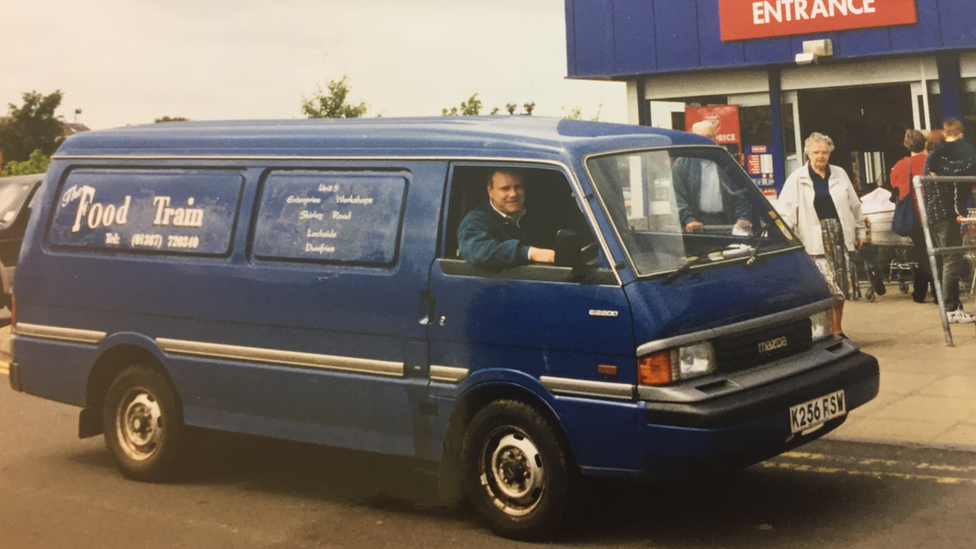
The first delivery route in Dumfries had just five customers
When Food Train's first "rusty old van" set off on 29 June 1995, it would have been hard to imagine what lay in store over the next quarter century.
The charity had just five customers on its grocery delivery route in Dumfries.
Since then however the group created by and aimed at helping older people has bought about £14.2m of shopping.
It has gone from a small local organisation into one that has made more than 445,000 lifeline grocery deliveries across Scotland.
In the beginning
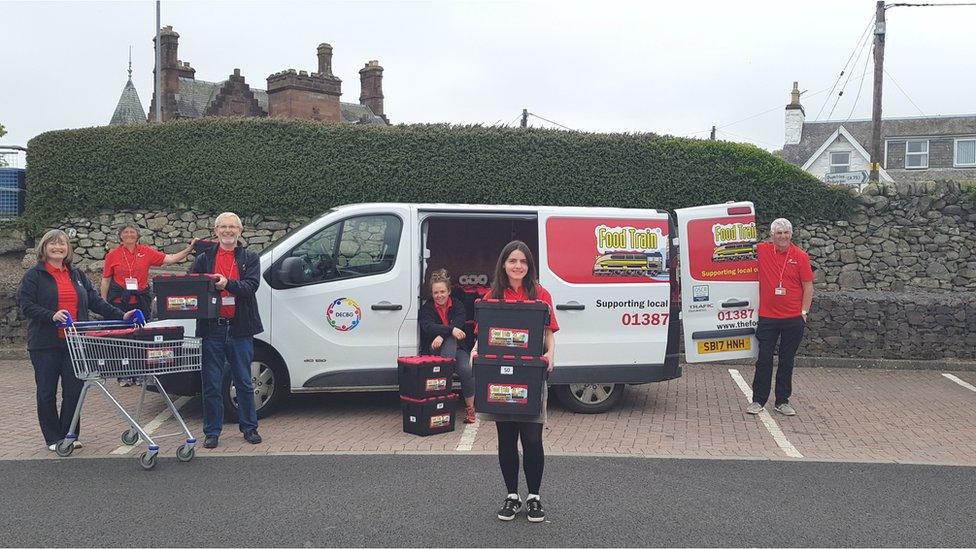
Food Train's operations have spread out significantly since its early days
Chief executive Michelle Carruthers said Food Train started when a "really tenacious" group of older people in the town came across issues surrounding food access.
A move towards out of town or online shopping might have been convenient for some - but it created problems for others.
"It was during a community survey that they found older people were going without," explained Ms Carruthers.
"They weren't eating fruit and vegetables because they were heavy to carry. They were going out less because they were a bit more worried about falling.
"So they were eating less as a result. They came across some worrying cases."
The group then set about putting in place volunteers and transport to get shopping to people who needed it.
You give them a list, and they bring it to you.
How has it grown?
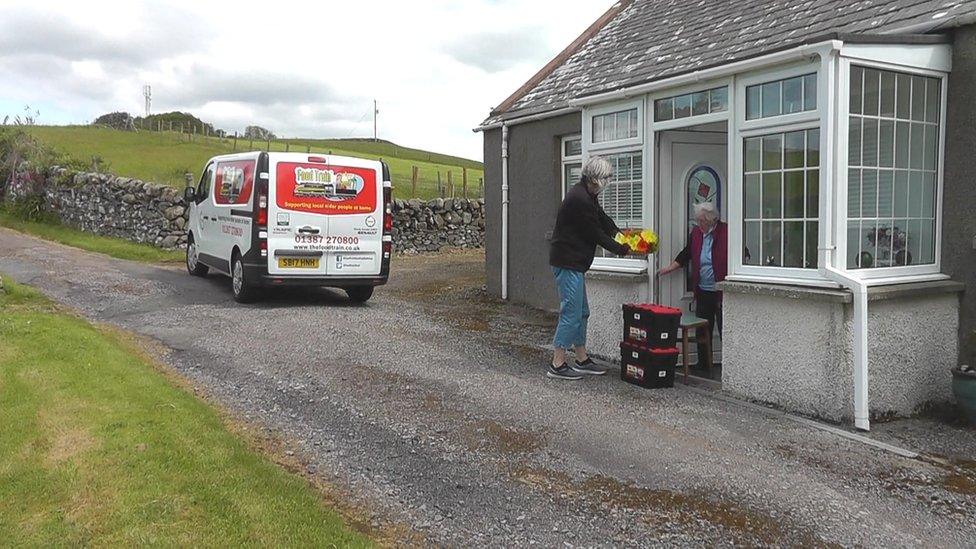
The charity supports thousands of people across the country
Its work with the over 65s has expanded significantly over its time in operation.
It now supports more than 3,000 members to eat well, enjoy more social contact and live at home for longer.
As well as Dumfries and Galloway, Food Train operates in Dundee, Glasgow, Renfrewshire, East Renfrewshire, Scottish Borders, Stirling, Clackmannanshire and West Lothian.
"If older people aren't eating well, they're not living well," said Ms Carruthers.
"If they're not living well, then their health deteriorates. It's that simple.
"By getting groceries to them, we help them to eat better, live better and improve the general health of the areas in which we operate."
Happy shoppers
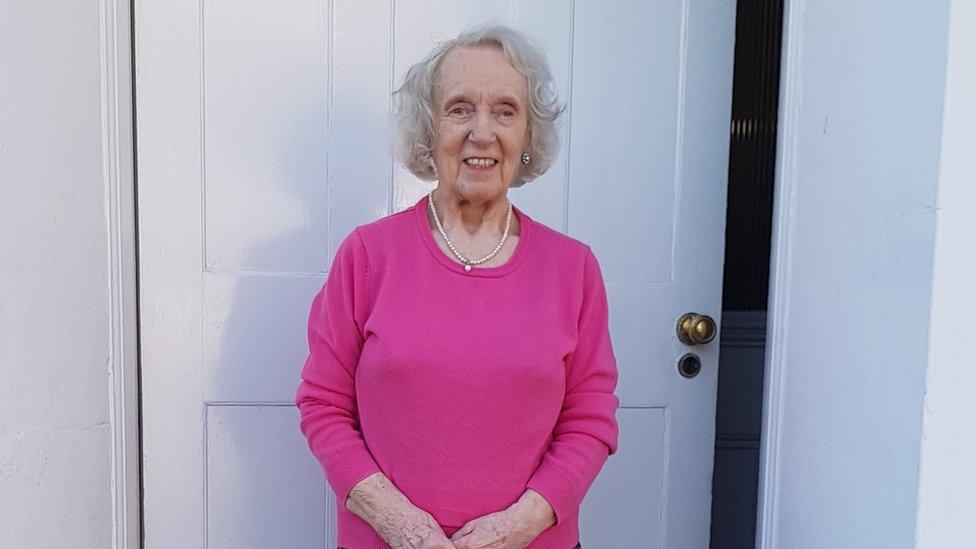
Nancy Houston is among those using the service, which she said made a "big difference"
Nancy Houston, 96, of Castle Douglas, has used the service for the past six years.
She said the volunteers were "wonderful".
"They are so willing to help," she said.
"It's all the little things they do that make a big difference, like putting the things in the freezer.
"They know just how I like it. They're a wonderful bunch of people."
Coronavirus challenge
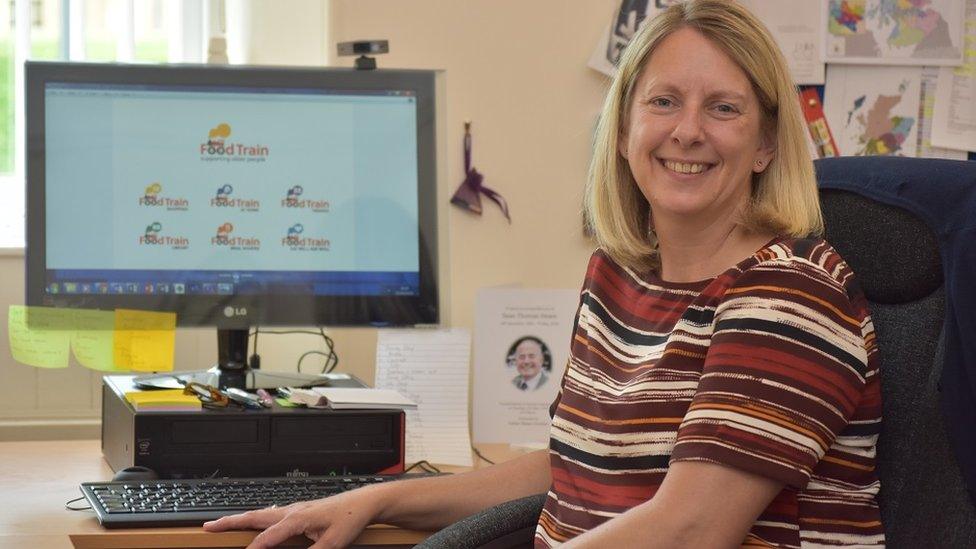
Michelle Carruthers said the Food Train was about "more than just shopping"
Ms Carruthers said the coronavirus pandemic had been "without doubt" the charity's biggest challenge.
Demand rose by more than 60%, while a number of older volunteers had to shield themselves against the virus.
Luckily, hundreds of new volunteers came on board as the charity had to "step up" during the crisis.
"For a lot of our older members who are not online and don't have mobile phones, even just understanding what was going on and how fast it was all happening was such a challenge for them," said Ms Carruthers.
"The volunteers have played an amazing role in providing that little bit of emotional support."
'Wonderful legacy'
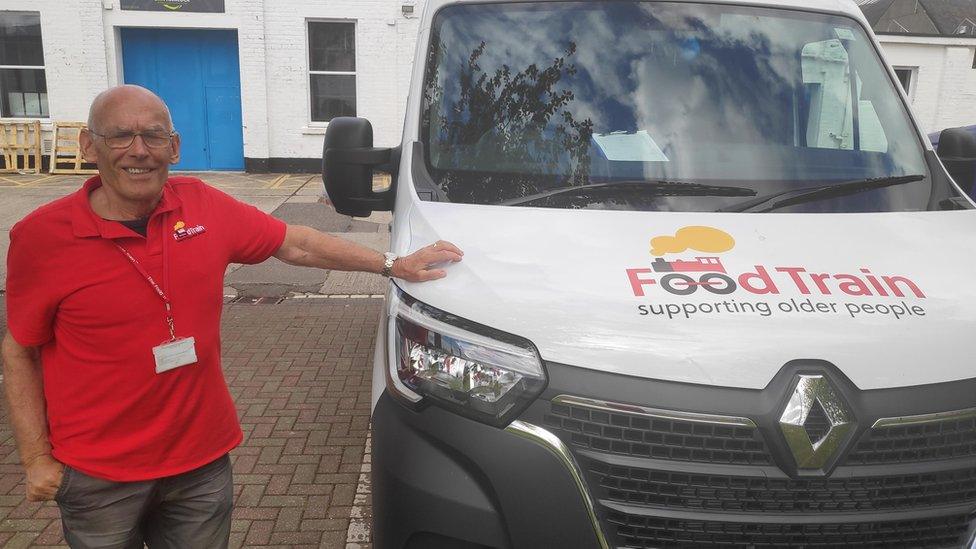
Ms Carruthers said everyone involved should feel "very proud" of Food Train's work
That is the very heart of what the charity aims to achieve.
"Food Train is about more than just shopping, it's about social contact," she said.
During coronavirus - when that has been more difficult - a "blether team" has been created to phone up and check on older members around the country.
"The older people who founded Food Train created a wonderful legacy of kindness and support," said Ms Carruthers.
"Everybody associated with the charity should be very proud of what it has achieved."